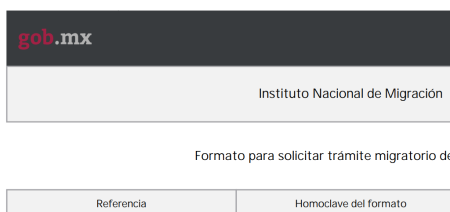Visa Results
Thanks to those of you who prayed for our trip and for Nathanael’s visa renewal this past week.
It was a stormy, rainy day when we set off for the immigration office, which made the roads a bit of an adventure. However, we were already in the city of Toluca – otherwise we would have been traversing Mexico City early in the morning, which would have been – well, perhaps a disaster.
But we arrived on time.
The immigration office is now a strange mix of strict security, and strict security due to COVID-19 restrictions. Usually, only one person would be allowed to enter the property. However, because I had to sign for Nathanael’s renewal, and because we had a lawyer, all three of us could enter – but poor Shari was left behind. (Well, maybe not so poor, as you’ll see…)
Except, that only got us onto the property. Next, only one person was allowed to enter the building, and that was our lawyer. So, for the next two or three hours, Nathanael and I were out in the cold (yes, it was cold – especially for Nathanael, who was only wearing a sweater). And for the first part, we were literally out in the rain, but thankfully it went to a drizzle and then stopped.
After the lawyer gave all the paperwork to the officials, we were all out in the cold (there were a whole bunch of nice, warm comfy seats inside, just — empty. Poor seats, with no one to sit in them…).
Did I mention that there was no bathroom that we could use – on the property or in the building? No worries. Just walk back to the front gate, and talk to the security guard. Explain that you’re just going to the bathroom (so that you don’t have to sign out, and then sign back in). Go across the muddy street, and through the big gate. Walk through the field, around the non-descript building. You’ll find a little hole-in-the-wall office in a back room. On the side of the office is an outhouse-quality bathroom (well, a flush toilet. But no sink or anything). After you’re done, you can pay someone in the office room about 30 cents for the use of the facilities.
Then, out of the little office, around the building through the field through the gate across the muddy street – hope the security guard remembers you – and back onto the property, where you still have to wait outside in the cold, because they’re not ready for you yet.
Finally, it was our turn. Everything is fancy electronic inside. No ink-pad for fingerprints, just an electronic pad (back in my day…..). Then this screen rooooooollls down from the ceiling behind you, and a picture is taken. Wait a couple of minutes – and your visa is ready right there. So all that part was actually a lot more efficient than it was in “my day”.
So thanks for your prayers! We had a safe (but precarious due to more rain) ride home, with a shiny new visa. Which can be turned into a permanent visa when Nathanael turns 18.







